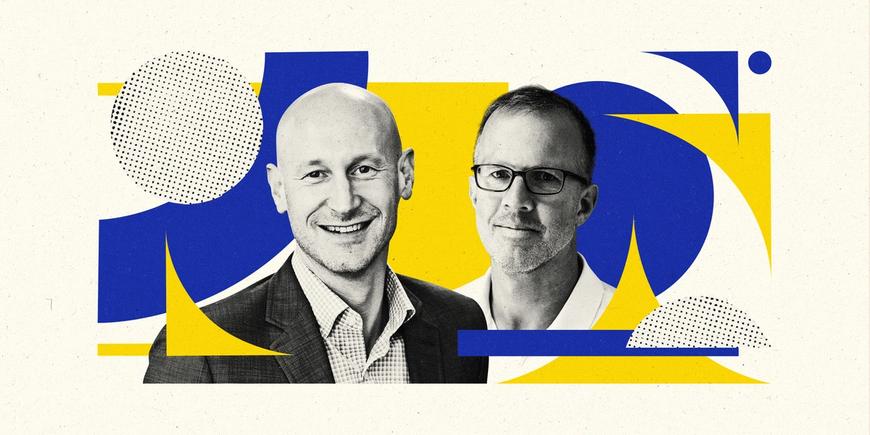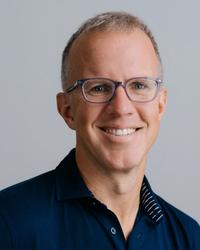Vestwell’s Category-Defining Success, Years in the Making
2023 was one of the toughest years on record for startups, yet Vestwell leveraged its increasing market leadership to earn a valuation of over $1 billion, according to Bloomberg

There are 33.2 million small businesses in America—that’s 99.9% of all businesses. But until Aaron Schumm started building Vestwell in 2016, there was no sufficiently credible, low-cost, flexible 401(k) or general retirement saving platform for the small business market.
Today, Vestwell is the leading employer and individual savings platform. It safeguards over $30 billion in assets, works with 300,000 businesses, powers 80% of the live state-sponsored auto-IRA savings programs in the country, and has partnered with banks like JPMorgan and Morgan Stanley as the infrastructure layer underneath their small business retirement savings offerings.
With its $125 million Series D led by Lightspeed Venture Partners along with us, Fin Capital, FinTech Collective, and newcomers Blue Owl and HarbourVest, Vestwell is well beyond a unicorn, Bloomberg calculates, and one of the American fintech and SaaS sectors’ biggest success stories of 2023. This type of ascent is always impressive, but especially so in this market environment that’s been so punishing on valuations, especially at the very top.
A telling market leader for this economy
The solution Vestwell is building couldn’t be more important in this challenged market. American savings are in crisis. Just 40% of American adults have a retirement-specific savings account. Even for those nearing retirement age, the picture is bleak: only half of baby boomers and 44% of GenXers have one. And retirement accounts aren’t the only deficit: 57% of Americans don’t have sufficient savings to cover a surprise $1,000 expense.
Aaron’s strong mission of empowering Americans to have affordable, easy access to savings has always been apparent. And his approach of doing this with banks and existing distribution channels, rather than against them, is a strategy that appealed to me from the jump.
Fintech goes farther together
From my first meeting with Aaron, I appreciated his disruptive but pragmatic approach to small-plan 401(k)s. There were early competitors going to market by going direct to the small businesses, and as a small business owner myself, I know I don’t want to go to my employees and ask them to trust their retirement savings to the customer service and stability vagaries of a new startup—and if it’s the kind of thing that would make people working in tech nervous, imagine those in the more traditional economy. In addition, we thought the go to market costs of building a direct-to-SMB owner sales motion would be extraordinarily expensive, with upside down LTV:CAC economics given the painfully slow revenue growth of the asset-driven pricing model of those businesses.
We believed that the existing distribution channels for other financial services, with real human beings interacting with end customers and the client company’s underlying employees would be a better way to drive change. And we knew Aaron could pull this off—in part because his previous startup, wealth management fintech platform FolioDynamix, continues on to this day, powering $800 billion in assets for over 100,000 advisors. And while a couple of those direct-to-SMB players have gotten some scale, the bet against their unit economics appears to have been right - they continue to burn mountains of cash and Vestwell has gotten further while raising far less capital.
Building powerhouse tech
The challenge was that existing tech solutions that drove the advisor-led 401(k) industry were 1) very old with no consumer-facing tech, and 2) monolithic platforms that worked for really large scale plans but could not be cost-effective for powering small plans. The opportunity Aaron saw is that Vestwell could enable existing channels to serve a huge customer segment that they previously had served barely profitably or not at all.
Pulling it off was no easy task. The amount of tech required and the proof of stability of your platform is why no one else had done it before and why it took Vestwell time to get here. But while it was slow going at first, we saw promising early signs along the way and very steady progress by Aaron and the team.
And now the work is validated exactly as we’d hoped it would be: JPMorgan selected Vestwell to help expand its 401(k) offering into small businesses, leading firms such as Morgan Stanley and state-sponsored IRA programs across the country are partners. Vestwell is the leading partner for state governments in the United States as they build a wide range of savings plans – retirement, college savings, healthcare savings, and more.
What’s ahead
Vestwell has been building aggressively to expand its market leadership position, but the preempted equity funding round announced today allows for further accelerated growth and ensures the company is fully capitalized for the future. The funds will accelerate the expansion of Vestwell’s offering to include new products such as Emergency Savings Accounts (ESAs) and Health Savings Accounts (HSAs), and help more working consumers and businesses move on from outdated legacy platforms.
We couldn’t be more pleased to continue supporting Aaron and company, and take special pleasure seeing Primary alum Dave Sheen excelling in his role as Vestwell CFO. From leading our initial diligence work on Vestwell as a Principal at Primary in 2017 to leading this financing from the other side of the table six years later, it’s been a fun journey to watch.
And our most recently added partner, fintech specialist Emily Man, to our team supporting Aaron and Dave going forward. Our success with companies like Alloy and Vestwell, and our realization that NYC can, should, and will be the center of the fintech universe in the decades to come led us to invest in expanding our fintech focus, bringing on Emily earlier this year. Having invested in unicorns such as Ramp, MX, and FloQast, Emily is a force who demonstrates a deep curiosity and understanding for the sector. For the next generation of fintech founders with world-changing aspirations, she’s the Primary leader to meet.
